
MAP News Issue # 605 – Aug. 24, 2024

UCF researchers develop treatment for deadly mangrove disease
USA – Mangrove CNP is a fungal disease that can cause infection and death in mangroves. It’s caused by pathogens Curvularia, Neopestalotiopsis, and Pestalotiopsis (CNP). Earlier this year, the disease caused 87% of the young mangrove trees at the Marine Resources Council’s mangrove nursery to die off. Now, however, the mangroves have grown back and are thriving once again. It’s all because of a new treatment created by scientists at the University of Central Florida and tested by scientists at the Marine Resources Council.After successful results in the lab, the UCF research team has been working with the Marine Resources Council to treat plants in the mangrove nursery. “The current treatment plan that we’ve been working with MRC on the nursery aspect is soaking mangroves for 24 hours in our treatment,” Deinys said. At the Marine Resources Council, Director of Science Mara Skadden has treated more than 3,000 mangroves with MgSun. She said the treatment works quickly and has made the mangroves at the nursery healthier and stronger.
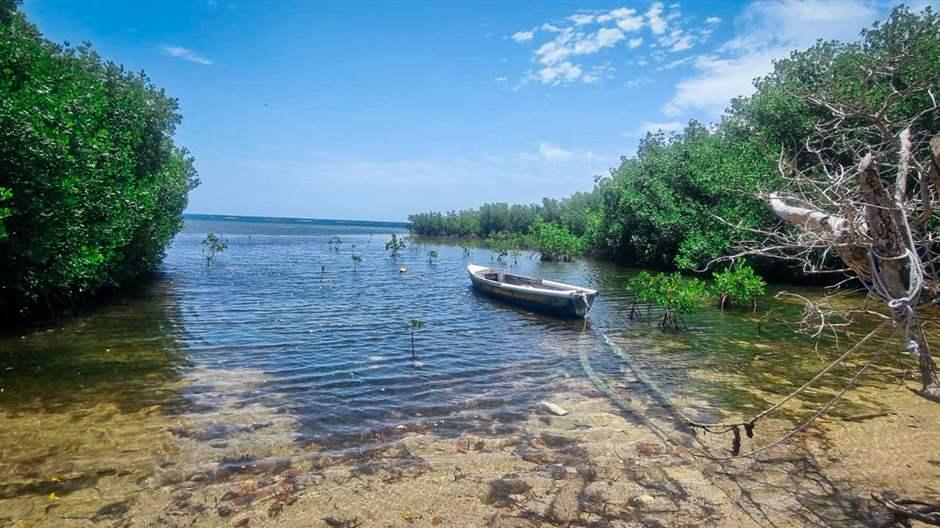
Mangrove and Seagrass Mapping Informs Jamaica’s Climate Policy
JAMAICA – Coastal wetlands, including mangroves like these in Jamaica, help communities mitigate and adapt to climate change, such as buffering storm surges. These ecosystems also help slow shore erosion and provide feeding and nursery grounds for a variety of birds, fish, and mammals.
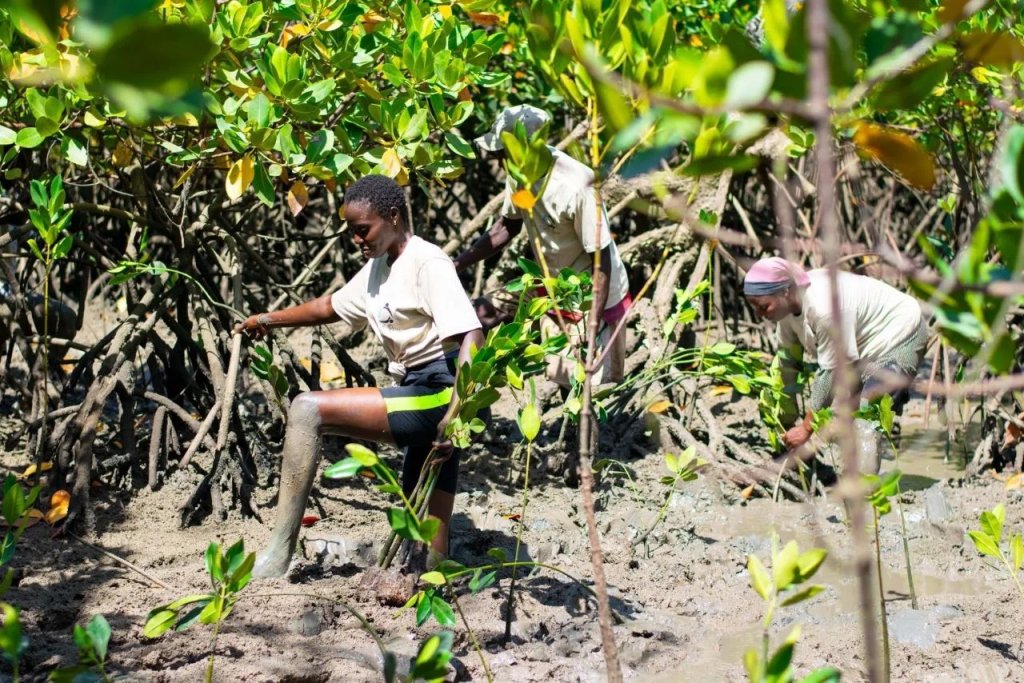
To conserve or to plant? A deep dive into mangrove management
KENYA – Mangroves are often hailed as ‘guardians of the sea’: they store more carbon than any other ecosystem on Earth, and they provide livelihoods for local communities around the world. But they’re also facing unprecedented pressures: more than half of the world’s mangroves are at risk of collapse by 2050. On Kenya’s Indian Ocean coast, mangroves have suffered decades of neglect and exploitation. Now, community members are restoring them with the help of traditional knowledge passed down from their elders.
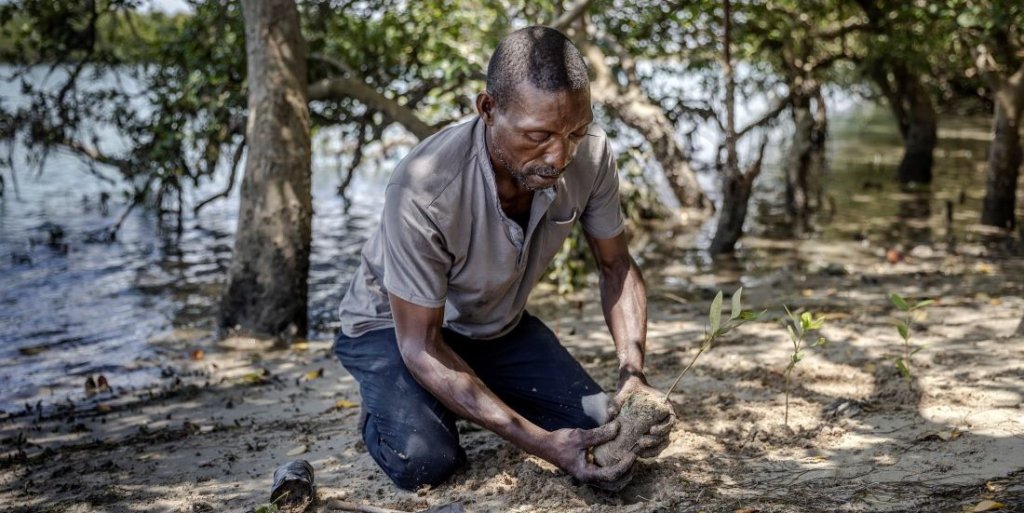
New manual aims to improve accuracy of mangrove monitoring
ITALY – A new manual on remote sensing techniques for mapping and monitoring mangroves at fine scales was launched at the Greening with Mangroves side event during World Forest Week in Rome on the International Day for the Conservation of the Mangrove Ecosystem. Produced by the Food and Agriculture Organization of the United Nations (FAO) and The Nature Conservancy (TNC), the new manual aims to help governments to gather far more accurate information on mangroves to better inform decisions on coastal land use and restoration.
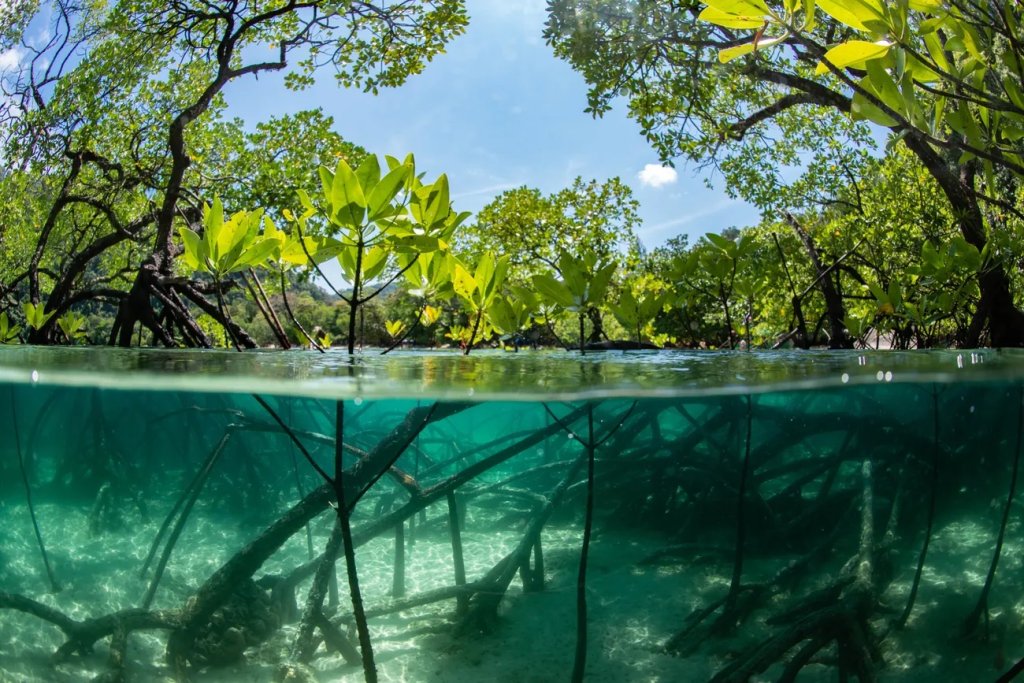
Central Marine Fisheries Research Institute launches mangrove plantation drive to bolster coastal ecosystems
INDIA – The ICAR-Central Marine Fisheries Research Institute (CMFRI) has initiated a mangrove plantation drive aimed at enhancing the resilience of coastal ecosystems. As part of this initiative, approximately one hundred mangrove saplings, representing various species, were planted near coastal water bodies at the Ernakulam Krishi Vigyan Kendra in Njarakkal, India, a campus managed by the CMFRI. The plantation drive was officially launched by Dr Grinson George, the director of CMFRI. This effort aligns with the ‘Plant4Mother’ campaign, recently introduced by prime minister Narendra Modi.
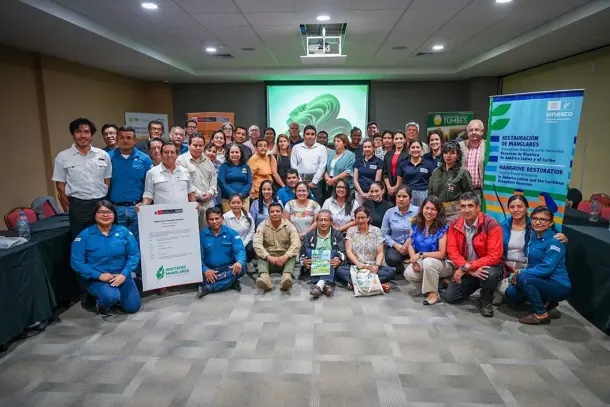
Tumbes host international meeting on advancing mangrove restoration efforts
PERU – From August 10 to 13, the Noroeste Amotapes Manglares Biosphere Reserve, recognized for its ecological and cultural significance and managed by the Manglares Consortium, hosted the fourth annual meeting of the MangRes Project (Mangrove restoration as a nature-based solution in biosphere reserves in Latin America and the Caribbean). This project, coordinated by UNESCO’s Man and the Biosphere (MAB) Programme and funded by the Government of Flanders (Kingdom of Belgium) and the National Parks Autonomous Agency (OAPN) of the Government of Spain, aims to restore and conserve mangroves in seven biosphere reserves across Latin America and the Caribbean: Colombia, Cuba, Ecuador, El Salvador, Mexico, Panama, and Peru.
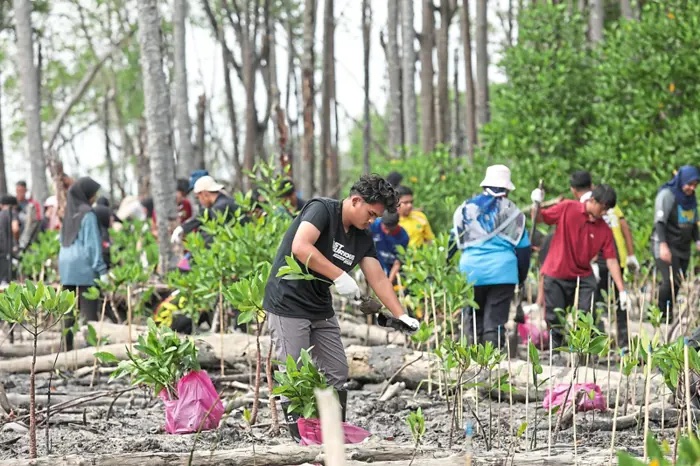
Rejuvenating mangroves tainted by oil spill in Tanjung Tuan
MALAYSIA = Severely damaged following an oil spill four years ago, the mangrove thickets at Tanjung Tuan Recreational Forest are set to thrive again, thanks to a reforestation effort by MBSB Group. Employees from the organisation, joined by 80 students from Politeknik Port Dickson (PPD) as well as volunteers from the Malaysian Nature Society (MNS) and Melaka Forestry Department staff, spent a Saturday morning planting 1,000 mangrove propagules along the stretch. This is the third spot in the country where MBSB Group planted mangroves this year, after having done so in Sabak Bernam in Selangor and Setiu in Terengganu. Similar programmes will also be carried out in Tuaran (Sabah), Tanjung Piai (Johor) and Nibong Tebal (Penang) in the coming months.
ACTION ALERTS
Join us in protecting Mexico’s jaguars and mangrove habitats
Fight the Marine Bitumen Spill
Stop land grabbing and racial discrimination for palm oil in Ecuador
Thank you to our many supporters who made this work possible, and to all of our friends and partners working to protect mangrove forests, worldwide. Mangrove Action Project relies on the generosity of donors to do our urgent work. Whether it’s a one-time or monthly commitment, your contributions make a real difference in safeguarding these critical ecosystems.
LIKE THIS NEWSLETTER?
Subscribe and never miss an issue!




